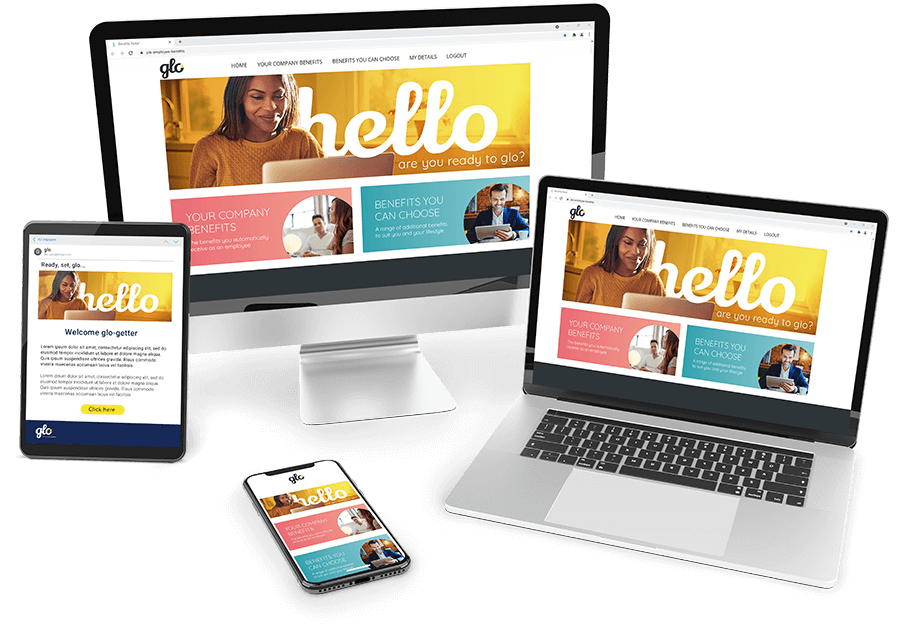Ready, set,

Wellbeing matters
The need to support your employees in all aspects of their wellbeing is no longer a nice to have. In the face of such constant change in the workplace, it’s now critical to your resilience and more so, a fundamental responsibility.

Your approach to reward and benefits is at the heart
Attracting and retaining talent; supporting physical, mental, social and financial wellbeing; and demonstrating your value, commitment and authenticity as an employer.
The importance of engaging benefits technology to bring this to life is without question
Making benefits brighter
Our people
Our platform
Our purpose
Time to give yourself a glo up?
Helping you and your people glo
Employee discounts
Inspiring communication
Voluntary & flexible benefits
Data insights
Reward & recognition
Total Reward Statements
Market review & procurement
Proactive guidance & support
Client-shaped solutions
Whilst we’re benefits technology experts, we’re not just another technology provider. glo is a consultative approach to maximising the power of your benefits technology.

The glo technology proposition
Save
Our glo discounts portal with optional communication support.
PIB Consulting Support
glo Discounts
glo Branding
glo Benefits Platform
Voluntary Benefits
Flexible Benefits
Personalised User Experience
MI Data
Market Review & Procurement
Digital Transformation Support
Communication (Optional)
Timescales: 1 week
Inform
Our glo benefits portal without the data. Providing access to information on a range of benefits. Includes our glo discounts portal.
PIB Consulting Support
glo Discounts
glo Branding
glo Benefits Platform
Voluntary Benefits
Flexible Benefits
Personalised User Experience
MI Data
Market Review & Procurement
Digital Transformation Support
Communication (Campaign)
Timescales: 2-4 weeks
Connect
Our data-driven glo benefits portal with a range of options, including voluntary benefits and full flex. Includes our glo discounts portal.
PIB Consulting Support
glo Discounts
Bespoke Branding
glo Benefits Platform
Voluntary Benefits
Flexible Benefits
Personalised User Experience
MI Data
Market Review & Procurement
Digital Transformation Support
Communication (Campaign & email)
Timescales: 3 months
Inspire
Our complete technology consulting solution, including assessment, market procurement and digital transformation support.
PIB Consulting Support
glo Discounts
Bespoke Branding
glo Benefits Platform
Voluntary Benefits
Flexible Benefits
Personalised User Experience
MI Data
Market Review & Procurement
Digital Transformation Support
Communication (Strategy)
Timescales: 3 months +
The steps we take to brighten your benefits

Dedicated team

Direct support

Clear data

Flexible solutions
Time to give yourself a glo up?
Meet Joanne Neary
Driving excellence for our clients

